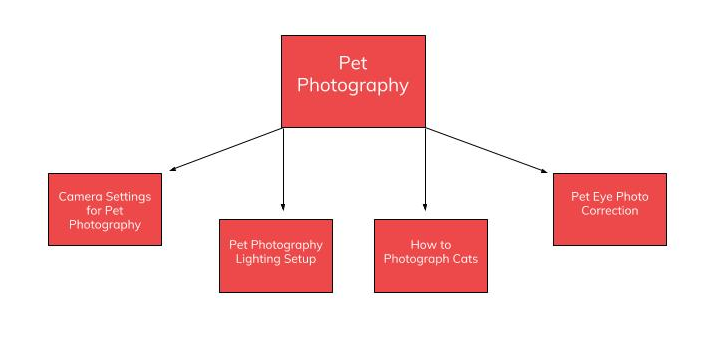Are keywords still relevant to SEO?
This is a question that comes up frequently in our industry – not just among our peers, but from our clients as well. On the surface, the answer may seem like a no-brainer: Of course keywords are relevant to SEO… right?
As with most things in the SEO industry, it’s a little more complicated than that.
In conversations about content strategy, we’ll often hear things like, “Our last agency focused purely on keyword targeting and we didn’t see any gains. We don’t want to get screwed over again.”
If you’re a business investing a great deal into search engine optimization, this is no doubt a valid concern to have.
But getting back to the question at hand, let’s take a closer look at what role keywords play in the current SEO landscape and how they still remain a vital role in growing your website’s search presence when leveraged correctly.
Keywords Are Just One Piece of the Puzzle… A Very Big Puzzle
If an SEO agency comes to you saying keyword targeting is the end-all-be-all of content optimization, then they’re doing it wrong. Or at the very least, they’re out of touch with the reality of organic search.
Every year, every month, every week and every day, Google’s algorithm is getting smarter. Advancements in AI and machine learning have officially put the nail in the coffin on dated tactics like keyword stuffing.
Google now has the ability to view your site’s content through a more sophisticated lens and gain a deeper understanding of your content’s search intent and topical relevance.
It’s our job to adapt.
But that’s not to say keywords should be neglected. Not at all.
In fact, it’s the keyword variations on a given page that ultimately help both users and search engines determine if the content is topically relevant.
Together, topics and keywords help search engines match user search intent with more accuracy, providing a more intuitive search experience.
Your website should function the same way.
Topics vs. Keywords: What’s the Searcher’s Intent?
Of the 3 billion searches or so that Google consumes each day, roughly 15% of those searches are brand new queries the algorithm has never seen before.
Why does this matter? It means Google is paying very little attention to individual keywords on a page.
So rather than building your website around hundreds of one-off pages that focus heavily on one specific keyword target with no underlying strategy or inter-connectivity, your best bet is creating content that feeds into larger, overarching topics that represent the core of your business.
Here’s an example:
Let’s say I run my own professional photography studio specializing in Family Portraits, Wedding Photography and Pet Photography. On my website, I have these services listed in a drop down on the main navigation menu.
If I wanted to make my website more relevant in search for “pet photography” as a general topic, I would use this Pet Photography service page as the central hub for all content related to pet photography-related search queries.
From there, I’d build out supplementary content around “pet photography” that more squarely focuses on specific, longer-tail keyword targets:

While much of my supplementary content will have a chance to rank and drive additional organic traffic to the site all on its own, the end goal with this model is really about increasing the relevancy of my domain (and my Pet Photography services page) as an authoritative source for pet photography-related queries.
This process of creating topic clusters is a natural progression in SEO and allows marketers to adapt to intent-focused algorithm changes without abandoning keyword targeting and research altogether.
The balance between keyword and topic relevance is essential to improving organic search results, but there are still a few other pieces of the puzzle that make it all worthwhile.
Strategic Internal Linking > Unorganized Internal Linking
Simply publishing content that ties in with a central hub topic isn’t enough. This content needs to be strategically interlinked with an underlying structure in place.
Referring to my Pet Photography example above, any supplementary content I create should hyperlink back to my core Pet Photography services page – at a minimum. Why?
Because without a strategic internal linking structure, there is an added layer of complexity when it comes time for Google to crawl and index the content, putting your content at risk of competing with itself in the search results.
An organized internal linking structure remedies this dilemma by directing hierarchical ranking signals to your site’s central hub topics, making it easier for search engines to prioritize, index and rank your content for users according to semantic relevance.
Giving Your Metadata Purpose
Lastly, keywords are still a crucial element of metadata optimization – more specifically, title tag and meta description optimization.
When these meta tags are effectively keyword-targeted, you’re putting your content in a better position to not only drive more clicks and discovery (both in the search results and on social media), but you’re also giving search engines a clearer sense of what your content is about.

The effect title tag and meta description optimization has can vary from niche to niche, but at the end of the day, these features are visible to both users and search engines so it’s best practice to optimize accordingly with handpicked keyword targets.
The Customer is Always Right
In sum, your SEO content strategy should follow a similar approach to Google’s search algorithm: How can we make the information on our site more useful and accessible to searchers?
Understanding how keywords fit into the larger algorithmic puzzle is the first step. The combination of traditional keyword targeting and strategic internal linking and topic clustering will allow you to package your content in a way that makes sense to the user.
And after all, what’s best for the user is often what’s best for Google.



















